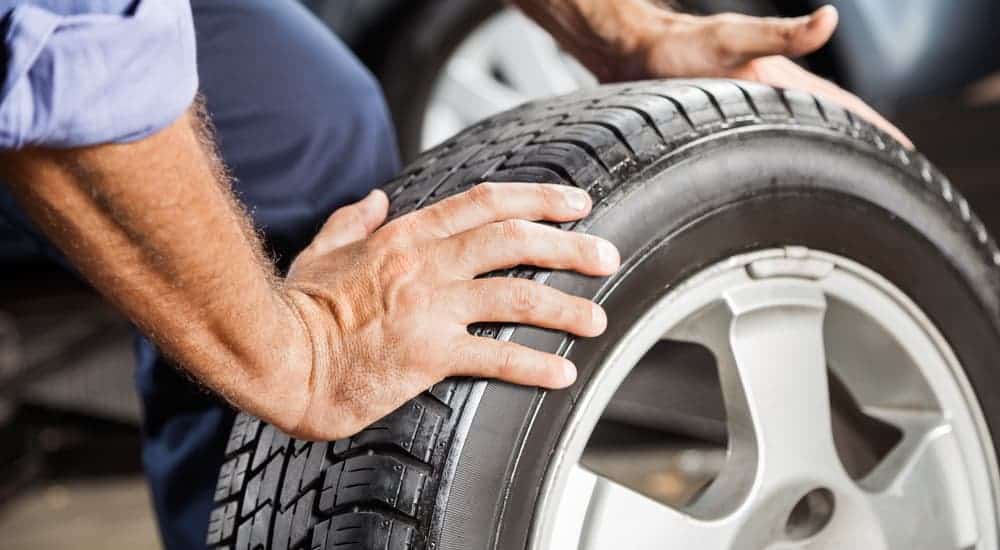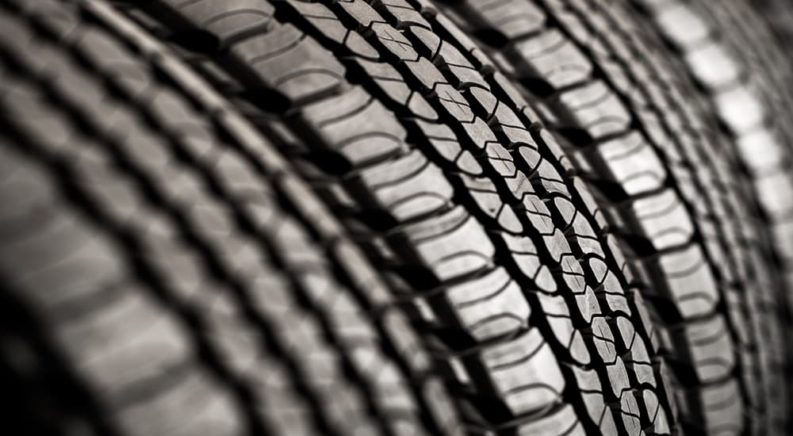For a lot of drivers, a tire is a tire is a tire. In reality, however, the tires on a vehicle are one of the most important parts and can make a huge difference in how a car performs and drives. That’s why it’s so important to understand different types of tires so you know what’s on your vehicle. After all, the tires are the only point where your car touches the ground (hopefully), so pick the right ones for you.
Rather than get into specifics about tire codes and all that, we’re going to start off with more general information. These are different types of tires for different vehicles and situations that are quite common. To keep things simple, we’ll divide them by vehicle type and than look at tires within those categories.
Keep in mind that there are more types of tires out there than just what we’re going to look at today. These are what you will usually find, however, so this is a good primer to get you started on what’s out there and what you’ll need for your vehicle. Now let’s see what we’ve got…
Passenger Vehicles
When it comes to tires, the term “passenger vehicle” refers to things like sedans and minivans. Coupes and sports cars are also within this category. These types of tires are designed for a smooth and comfortable ride and include a number of different varieties.
#1: All-Season Tires
These are tires designed for use in all kinds of road conditions and weather, with no particular preference. They are meant to provide good traction on dry surfaces as well as wet conditions due to rain or snow. All-season tires are pretty standard and work well on city streets and highways, though they are not particularly well-designed for going off-road.
#2: Touring Tires
Sometimes also called Grand touring tires, these are designed for general use in most kinds of weather. Touring tires tend to be designed with an eye toward speed and handling, rather than working well in all kinds of weather conditions. Overall, where all-season tires are often better for handling rain and similar conditions, touring tires are more comfortable and provide better handling on dry surfaces. But unlike more specialized types of tires, touring ones are still pretty dependable when the road is wet.
#3: Performance Tires
As the name suggests, performance tires are designed with speed and handling above everything else. These types of tires are still safe on wet surfaces, but not necessarily designed with all kinds of weather in mind. Good performance tires have higher speed ratings than touring and all-weather tires, so they are a great choice if you tend to drive fast. Of course, this rating just means the tire is still effective, and it does not mean it is safe or legal to go above the posted speed limit.
#4: Summer Tires
These are specialized tires designed specifically for use in dry conditions in warm climates, with decent effectiveness when wet. They are not designed for all-weather use, in particular, they are not a great choice for places where it gets very cold and there is the potential for snow and ice. Since they are meant for summer, however, they are still designed to resist hydroplaning when the road is wet, but they work best in warm weather.

Trucks and SUVs
Due to the larger size of trucks and SUVs, they have types of tires that are specific to them. Just like with passenger vehicles, the manufacturer of a truck or SUV indicates what sort of tire should be used and the size necessary. When it comes to these types of tires, the type of terrain you drive on is usually most important.
#5: Highway Tires
Just as the name suggests, these tires are designed for use on the highway and paved roads in general. They are made to handle heavy loads, including the weight of a truck carrying a heavy payload, and are designed to provide a comfortable ride. Highway tires are usually meant for all kinds of weather, so long as you stay on the road, and they are designed to wear evenly over a long period of time, so they keep you in control.
#6: All-Purpose Tires
Sometimes also referred to as trail tires, all-purpose tires provide a middle road for larger vehicles if you like to drive in different areas. These tires work well on pavement, including city streets and highways, but can also handle rough terrain such as dirt roads quite well. They are typically more rugged types of tires than highway models and provide pretty good grip when going off-road, especially on gravel. They are sometimes also called “very mild all-terrain” tires.
#7: All-Terrain Tires
True all-terrain tires, on the other hand, are specifically designed to handle just about anything you throw at them. They have a more aggressive tread pattern than highway tires and larger tread blocks with more space between them, which provides better traction when going off-road. Good all-terrain tires are designed to handle dirt, sand, and even mud with ease, and still provide a comfortable and relatively quiet ride on pavement. This is not the ideal type of tire for deep mud, however, but otherwise, it is a great fit for nearly any situation in a large vehicle.
Specialty Tires
Certain types of tires are not necessarily indicated by the type of vehicle they are for, but for other special conditions in which they are best. While there are more than just two types of specialty tires out there, two in particular, are worth noting because they are pretty common. Keep in mind you can find these for passenger vehicles as well as larger ones such as trucks and SUVs, and they’ll be designed at proper sizes for those types.
#8: Winter Tires
Just as there are summer tires best for use in warm climates, there are also winter tires that are ideal in specific cold conditions. These types of tires are designed for use when the temperature drops below 45 degrees and the risk of snow and ice on the road increases. Winter tires are designed to keep slush and snow from building up in their tread so that you maintain control as they grip the road in bad winter weather.
There are also studded winter tires available, which feature metal studs or pins on the surface of the tires. These provide excellent traction when driving on icy roads, but they can be loud and make for a very uncomfortable ride when there is no ice—plus they are illegal in some states. So studded winter tires need to be changed when there is no ice on the ground, making them less than ideal for most situations.
#9: Spare Tires
Commonly found in the trunk of a vehicle, spare tires are designed to work well but only over short distances. They usually have pretty shallow tread and are only meant for temporary use. Most of them are rated to only go up to 50 mph and are not designed to travel more than about 50 miles. Spare tires are designed for use when you have a tire go flat or blowout and need something to get you a short distance, such as home from work or to the nearest garage in your area.
Now that you know some of the most common types of tires out there, you’ll be ready the next time you need new ones on your vehicle.

